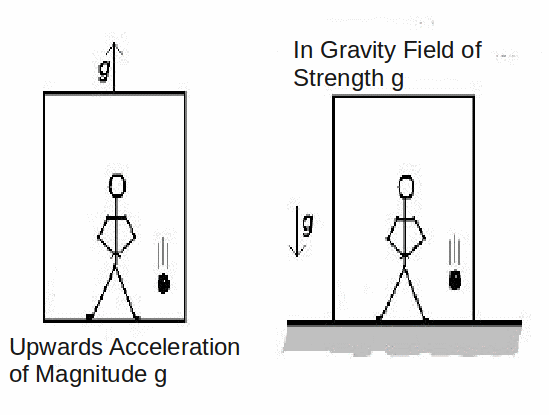The principle of equivalence is one of the foundations of the general theory of relativity. It states that it is impossible by any local measurement or experiment in a small region of space to deduce the nature of an acceleration: is is due to an applied force or a gravitational field.

The astronaut in a rocket above drops an object. He cannot deduce from any measurement made inside the rocket whether he is at rest on the surface of the Earth, or far from all gravitational influence, experiencing an acceleration of magnitude g.
The principle of equivalence only applies to 'local frames'. It implies the equivalence of gravitational mass![]() and inertial mass
and inertial mass![]() If a body is subject to a constant force, then the inertial mass will increase as the speed of the mass does, via the equation
If a body is subject to a constant force, then the inertial mass will increase as the speed of the mass does, via the equation In a local frame, all speeds are relative to the frame, so the masses will appear to be the same.
In a local frame, all speeds are relative to the frame, so the masses will appear to be the same.
